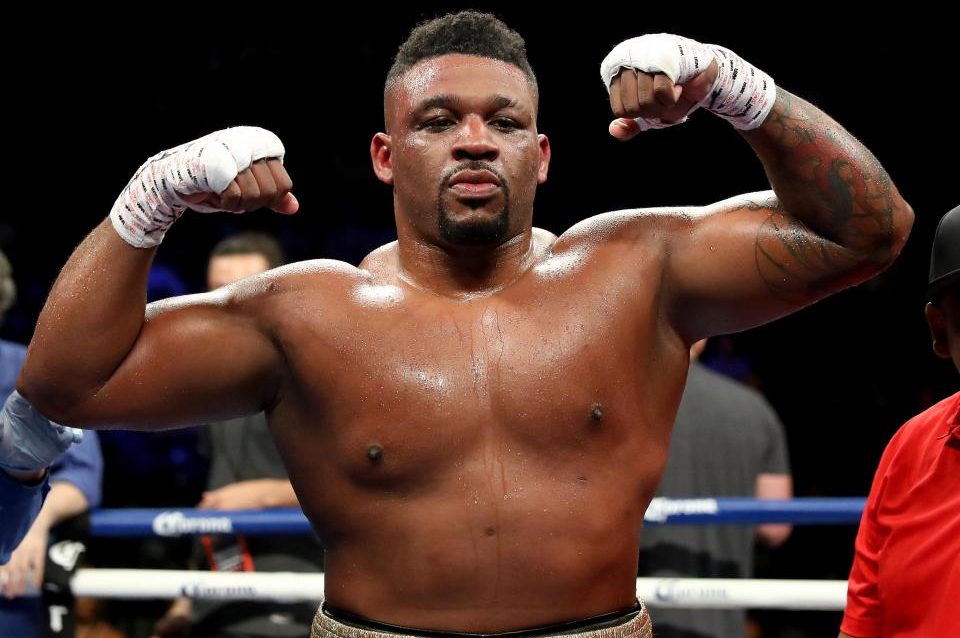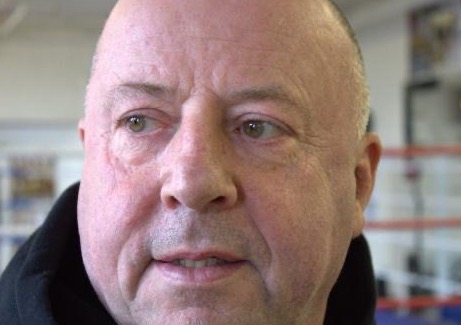In his latest column, strength and nutrition guru Kerry Kayes discusses the issue of PED use in boxing as well as a fighter’s personal responsibility when it comes to making weight.
I’ve been asked about PEDs before, and people would expect me to say this, but I’ve never, ever had first-hand experience of anyone in boxing taking drugs. I like to think that I’m one of the lads and if anyone wanted information about them they’d say, ‘Kerry, what does that do?’, yet I’ve never been put in that position.
My only experience of drugs in boxing is from the same sources that you all get it from, namely what I read in the press and on the internet. We’ve had the Jarrell Miller thing lately and other high-profile ones so people assume everyone is on it, but I don’t see it that way. I think some lads struggle to make weight, they kill themselves for it, and they equate taking a shortcut with just trying to help themselves out. Then they take a stimulant, often an over-the-counter one, and have no idea what they are taking. I don’t think it is as widespread as it is made out to be.
A steroid will not make you a better boxer, it simply won’t. Anabolic steroids are all derivative of testosterone. What they will do is make your body more efficient. This is the best way I can explain it. You might be genetically born with the physical equivalent of two bricklayers on your body’s building site. Your genetics set that for you. If you’ve got someone with two bricklayers on their building site who takes anabolics they will get the equivalent of three bricklayers or more on their building site and this increases efficiency.
The problem is that the bricklayers need to have more bricks delivered to do a more effective job. If you don’t eat better and train better then you are wasting that efficiency that you have brought in. Anabolic steroids won’t make you block a jab better, but they will make you more efficient so that your trainer can teach you more effectively. You can train longer, quicker and better. You are a more efficient athlete, just not necessarily a better boxer.
I was a bodybuilder. I am on record admitting that I took every anabolic steroid there is, I truly have. I was born in the 1950s, so by the time I was 30 I could get branded anabolics. Nowadays they are all generic, so no one knows what they are taking. It is a lottery. Maybe that is why people are getting caught now. People are taking stuff without realising what they are taking even when it is over the counter.
Let’s look at peptides. There are now lots and lots of peptides, which are no different to designer steroids as they link chains of amino acids and can help produce lean muscle. You can buy these things legally, you can buy them to order. Because they are legal to buy, people think they are okay to use in boxing, but they are not and you can still fail a drugs test over something that you have bought in good faith.
I wasn’t sure if I should put this in this article, but I will as I think it makes a good point, so let’s look at Dillian Whyte’s failed test for Methylhexaneamine in 2012 after taking Jack3d, which could be bought in stores. I spoke to him when he failed his test, he bought the product at Holland & Barrett. Just because you can legally buy it doesn’t mean it is not on the banned substances list.
In my opinion, Dillian was 100% innocent. He ingested a substance without realising it. There are calls for immediate lifetime bans for any failed test yet imagine what would have happened had he been banned. What a presence he has been for British heavyweight boxing, what a character. He has been involved in some brilliant fights. We’d have missed out on all that with a blanket ban.
We need to do it on a case-by-case basis at all times. People call for a blanket ban, but although I think it is terrible if someone takes anabolic steroids and goes out to hit another person it should always be considered on the merits of the case itself and what they have taken. It is too complex to just make a blanket statement about.
We had lots and lots of people coming to Betta Bodies and The Phoenix back in the early days. We had writers who would come in and remark that it was quite rare for someone like Billy Graham, a proper boxing trainer, to bring in some bloke to do strength work. I was that bloke for Billy. No one else had a Kerry Kayes back then, if you like.

heavyweight Jarrell Miller stands accused of a third offence.
Now you have a load of people doing the same thing with the boxing trainers. You’ve got young, fit and fine lads advising boxers and, at times, the boxing coach doesn’t know what it is going on with them. It is almost like the boxing coaches have taken their foot off the pedal and allowed all these fitness and strength and conditioning coaches to come in and tell the athlete what to put in their body. And good luck to these guys, by the way, as I’m not knocking them. Billy and I didn’t do that. He was the boxing coach. Boxers used to have one boxing coach, now you’ve got more than one coach and that is always going to lead to confusion. People need to take responsibility for what they take and the advice that they follow.
People have asked me what it is like to do anabolic steroids. Let’s say, and to use the earlier analogy, that I had now two bricklayers in my physiology and they are getting delivered a thousand bricks a day. What that means is that I ate a certain amount of proteins, carbohydrates and essential fats, and these two bricklayers had to do their job. If I delivered more than a thousand bricks I’d just put body fat on. If I took anabolic steroids, and, again, I freely admit that I did, then if you delivered two thousand bricks you’d get less body fat and your body builds lean tissue.
When you take anabolic steroids you also have the associated health risks. That was never a problem for me as I’d always go out and get my bloods done. I’d check that my liver and kidneys were functioning, and I’d check my blood pressure, so in that respect I was not irresponsible. I also had a wife and kid so wouldn’t go out and get random stuff. I knew what I was taking.
The other side of the coin was, ‘Is this cheating, is it right?’ I used to compete under the EFBB. It was a non-drug tested federation, so every person on stage was taking anabolic steroids. Even some of the people judging you were on them! There were other federations that tested you. If you took steroids in the BNBF, British Natural Bodybuilding Federation, then, of course, you were cheating. I actually financed the first year’s drug testing for the BNBF and I’m proud of that. They even used to give lie detector tests to their competitors.
I’ve seen a bodybuilder win a title who was genetically built with six bricklayers in his system, the steroids increased that up into 12 and he got so big it became ridiculous. Not everyone in boxing can have talent of a Mayweather or Lomachenko, not everyone in bodybuilding has that natural ability to bulk up, but it became absurd. However, some people have a fantastic ability to build up muscle so you also can’t discount genetics.
The first thing that anyone says when they get caught is, ‘Well, everyone else is doing it’. I truly believe that there aren’t as many people out there doing it as we are told by the media and the internet. Are you arguing that if you are an outstanding athlete you must be on drugs? That’s rubbish.
To go back to bodybuilding, the biggest bodybuilding show in the world is Mr. Olympia. Joe and Ben Wieder used to run it, and Joe was hell-bent on getting bodybuilding classed as an Olympic sport, and once you’ve done that you get a chance to get to the Olympics. Everyone thought he was flogging a dead horse.
Then, in 1990, they drug tested for the first and only time before the show, everyone was about 20 pounds lighter and then the following year they were all back on stage 20 pounds heavier, but it isn’t a contact sport so are you cheating? Boxing is different because it is a dangerous contact sport and that’s why it becomes an emotional question. One that I don’t think we have an answer for just yet.
***
Making weight is something that many fighters always struggle with. In bodybuilding, every serious person who stands on stage is very, very informed about diet, water retention and all the things you need to know about those areas, but boxers seem to go fucking doolally when it is explained to them. Then they rely on other people to get the weight off them. How is that possible?
You’ve got to take personal responsibility. You’ve got to take note of what you ingest. You can’t just say, ‘My strength coach told me to take this’ — you just can’t do that. Some of them don’t eat or drink all day, so the blood glucose levels go low, which can result in a coma, and you can even die, and the body gets an irresistible urge to eat simply to protect itself. This is why so many boxers binge eat at night. If they are hydrated and ate in the day properly they wouldn’t have those issues.
That being said, I’ve never refused a fighter when they ask for help. If the fighter is desperate to learn then I’m locked into trying to help them. Then sometimes you speak to a fighter and they aren’t taking it in or listening. In those cases, I end up talking like a robot, it just becomes words yet I just can’t say ‘No’ to a fighter who asks me for help.
It is all about self-discipline. When I was competing as a bodybuilder, I would make a bacon butty in the middle of the night and just sit there looking at it. It makes me laugh looking back at it yet that was the discipline that you had to instil in yourself. Both boxers and bodybuilders have these big teams behind them now. Ultimately, though, you have to get yourself up there on stage or in the ring.
Often, getting a fighter to do anything in their career becomes a question of personal responsibility. You can help them as much as you want yet the way I see it is that if they are heading towards a cliff and about to go over it and you are holding their hand, they will take you with them. You can help, advise them and do as much as you can, but sometimes you have to just let go of their hand in the hope that they don’t go over the edge. That’s the approach I take to offering advice in all areas of life.
Kerry Kayes was talking to Terry Dooley.
